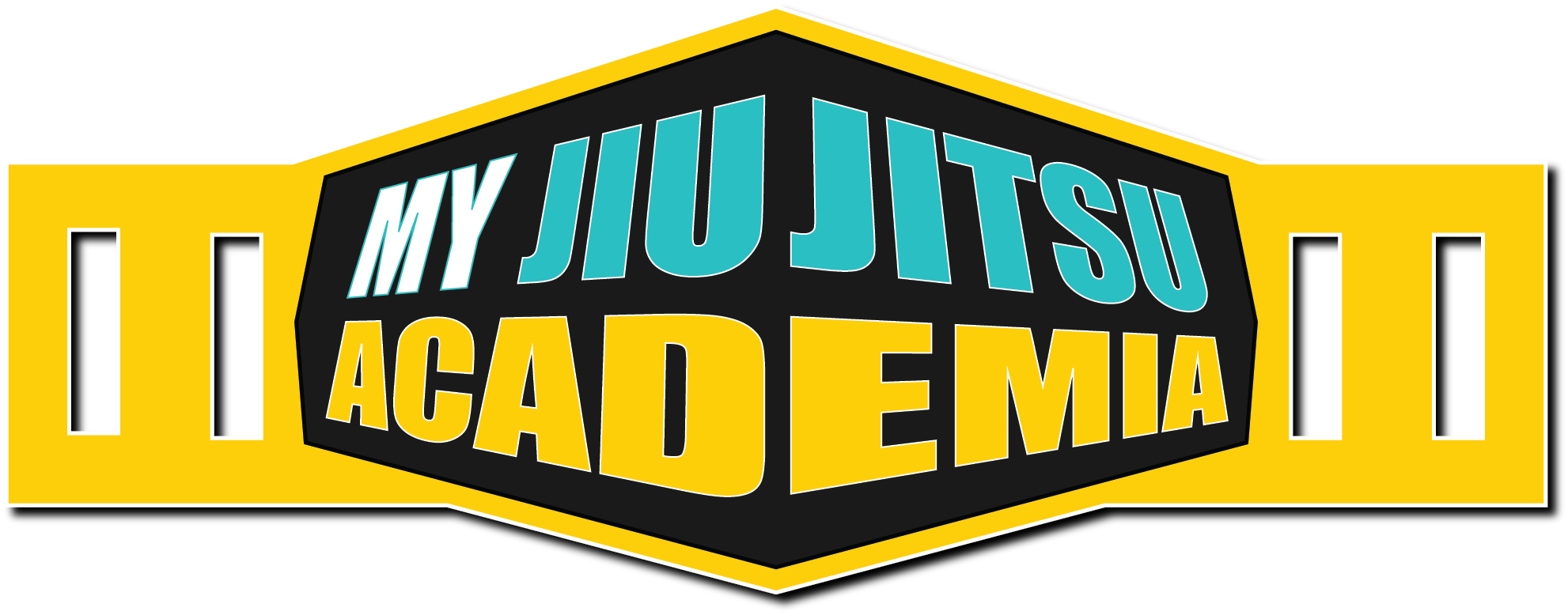weight training for jiu jitsu
Let’s talk weight training for Jiu Jitsu. If you’re serious about jiu jitsu, you know that strength and conditioning training are just as important as technical training of bjj. The right weight training program can help you build strength, power, and endurance, all of which can help you perform better on the mats.
As a dedicated jiu jitsu athlete, I understand the importance of weight training for jiu jitsu. In this article, I’ll go over the benefits of weight training for jiu jitsu, I’ll share with you how I go about creating a comprehensive weight training program that will help you take your game to the next level.
The Benefits of Weight Training for Jiu Jitsu
BJJ is a sport that requires both technical skill and physical conditioning. While drilling techniques and rolling with partners are essential components of BJJ training. Yes, the only way to get better at Jiu Jitsu is to do Jiu Jitsu, BIG FACTS! But, incorporating weight training into your routine can help you develop the strength, power, and endurance and those things will only aid you on your journey.

By building a solid foundation of strength and conditioning, you can:
- Improve your overall athleticism and explosiveness
- Enhance your ability to perform BJJ-specific movements (such as shrimping and bridging)
- Reduce your risk of injury
- Increase your muscular endurance, allowing you to roll for longer periods without fatiguing
Best Weight Training Exercises for Jiu Jitsu
When it comes to weight training for jiu jitsu, there are certain exercises that are particularly effective for BJJ athletes. For me for me I found I lacked hamstring and glute strength, so this list is some of my favorite exercises that helped me develop my weaker areas.
Deadlifts
Deadlifts are one of the best exercises for building overall strength and power, making them an excellent choice for BJJ athletes. This compound exercise targets multiple muscle groups, including your glutes, hamstrings, and lower back, which are essential for BJJ movements like bridging and hip escaping.
Lunges
Lunges are a fantastic exercise for building strength and power in your legs, making them an excellent choice for BJJ athletes. This exercise targets your quads, hamstrings, and glutes, which are all critical for movements like passing the guard and shooting for takedowns.
Rope Pulls
Rope pulls, are an effective way to improve grip strength, which is essential for bjj grappling. Having a strong grip can help you maintain control over your opponent and execute techniques like lapel chokes. Rope pulling exercises also engage multiple muscle groups, including the upper back, arms, and core, which can improve overall strength and stability during training and competition. By incorporating rope pulls into your weight training program, you can enhance your jiu jitsu performance and become a stronger, more well-rounded athlete.
Farmer’s Walks
Farmer’s walks involve holding a heavy weight in each hand and walking a set distance. This exercise can help you develop grip strength and endurance, which are crucial for BJJ athletes. Grip strength is particularly important for techniques like gi chokes and controlling your opponent’s wrists.
Incorporating weight training for jiu jitsu into Your Weekly Training Schedule
Now that we’ve talked some of my favorite weight training exercises for jiu jitsu, it’s important to understand how to incorporate them into your weekly training schedule. Here’s an example of a BJJ training program that includes bjj and weight training into your week. Below is an example of a weekly BJJ and strength training program:

Monday – Friday: Attend a Jiu Jitsu class – practice technique, drilling, and live rolls. Only do weight training exercises for jiu jitsu on Monday, Wednesday, and Friday. Rest Saturday and Sunday, or hit a open mat, but go light.
Monday:
- Warm-up: 5 minutes on the rowing machine
- Lunges: 3 sets of 10 reps
- Leg curls: 3 sets of 10 reps
- Bench press: 3 sets of 10 reps
- Pull-ups: 3 sets of 10 reps
- Core exercise: 3 sets of 30 seconds
Wednesday:
- Warm-up: 5 minutes on the stationary bike
- Squats: 3 sets of 10 reps
- Deadlifts: 3 sets of 10 reps
- Dumbbell shoulder press: 3 sets of 10 reps
- Lat pulldowns: 3 sets of 10 reps
- Rope pulls: 3 sets of 30 seconds
Friday:
- Warm-up: 5 minutes on the elliptical
- Incline bench press: 3 sets of 10 reps
- Cable rows: 3 sets of 10 reps
- Bicep curls: 3 sets of 10 reps
- Tricep extensions: 3 sets of 10 reps
- Russian twists: 3 sets of 30 seconds
Remember to always warm up before your weight training for jiu jitsu workouts and cool down afterward. Stretching is also essential to maintain flexibility and avoid injuries. Especially if you’re an older jiu jitsu practitioner, we have all heard the old guys talk about their injuries and their limitations. We all will have them, but the goal is to learn from other mistakes. So take your stretching seriously. If you’re new to weight training, consider working with a personal trainer or coach to help you develop a safe and effective weight training for jiu jitsu strength training program.
BJJ and Weight Training on the Same Day: Yes or No?
One question that people ask me in the gym is do I train BJJ and lift weights? When it comes to weight training for jiu jitsu and whether to train and do strength and conditioning on same day, or on separate days. I do it, but that is just me. I do it because I have a clear goal on how I want my body to look and preform. At the end of the day the choice of whether you should or not ultimately depends on your individual goals and training schedule.
If you’re looking to maximize your strength gains and have the time and energy to dedicate to separate workouts, doing weight training for jiu jitsu and BJJ on the same days may be the best option for you. This approach allows you to fully focus on each type of training without compromising your performance in either one.
On the other hand, if you’re short on time and can only do one or the other then maybe structuring a weight training day and a jiu jitsu day throughout your week.
Ultimately, the decision to do weight training for jiu jitsu and BJJ on the same day comes down to personal preference and individual goals. Not everyone will be able to work a 9 -5 job and have the time to hit the gym and go to jiu jitsu practice. If you do choose to lift weights and train jiu jitsu on the same day then you have to remember that it is imperative that you take care of yourself.
If you decide to combine them, it’s crucial to prioritize proper recovery, nutrition, and sleep to avoid overtraining and maximize your results. If not you will end up hurt, and that will be time that you wont have on the mats training, so be careful and make sure you take care of your body. You don’t want to add weight training for jiu jitsu to your training regiment and then end up hurt and out for weeks, or worse even months.
Incorporating Weight Training Into Your BJJ Training Program
If you decide to incorporate weight training for jiu jitsu into your BJJ training program, it’s important to do so in a way that complements your martial arts training and helps you achieve your goals. Here are some tips that helped me when I first started weight training for Jiu Jitsu.
- Focus on compound exercises: Compound exercises such as lunges, squats, deadlifts, bench press, and rows are great for building overall strength and are highly effective for jiu jitsu practitioners.
- Prioritize functional movements: When choosing exercises, focus on movements that mimic the motions you use in BJJ, such as hip thrusts and Turkish get-ups. This will help improve your technique and overall performance.
- Use proper form and technique: Proper form and technique are crucial for preventing injury and maximizing your results. If you’re unsure about how to perform an exercise, seek guidance from a qualified trainer or coach.
- Start slow and progress gradually: If you’re new to weight training, start with lighter weights and gradually increase the weight and intensity over time. This will help you avoid injury and ensure that you’re making steady progress.
- Incorporate recovery days: Rest and recovery are crucial for avoiding overtraining and maximizing your results. Make sure to incorporate recovery days into your training program and prioritize proper nutrition and sleep.
Importance of Nutrition for Jiu Jitsu Athletes
In addition to weight training for jiu jitsu, nutrition is also a crucial component of any comprehensive training program for jiu jitsu athletes. As with any sport, the fuel you provide your body can significantly affect your performance on the mats.

The mindset I try to keep is that I may not be getting paid, but I am training like a professional athlete so I need to provide my body with the right fuel just like a pro athlete would. A balanced diet rich in nutrients like protein, carbohydrates, and healthy fats can help you maintain your energy levels, enhance your recovery time, and build lean muscle mass. Adequate hydration is also essential for optimal performance, especially in combat sports where sweat loss can be significant.
Myself I try to primarily focus on my protein intake. I would like to stay at a certain muscle mass and consuming the recommended 1g of protein per pound of body weight. That is because I am trying to loose weight and build muscle. It is also worth noting that while protein is important for muscle building and weight loss, it is not the only factor to consider. A balanced diet that includes a variety of nutrient-dense foods, and healthy fats is important for overall health and well-being.
When weight training for jiu jitsu you as an athlete should aim to consume a balanced diet consisting of whole foods, including lean proteins like chicken and fish, complex carbohydrates like sweet potatoes and brown rice, and healthy fats like avocado and nuts. It is also important to consume enough calories to fuel your workouts and support muscle growth. Consuming a post-workout meal or supplement can help replenish glycogen stores, which can be depleted during intense training sessions.
In addition to whole foods, supplements can also be beneficial for jiu jitsu athletes. Protein powder can be an easy and convenient way to ensure you are meeting your daily protein needs, while pre-workout supplements can help improve energy levels and focus during training sessions. However, it is essential to consult with a healthcare professional or registered dietitian before adding supplements to your diet to ensure their safety and efficacy.
Injury Prevention for Jiu Jitsu Athletes
Injury prevention should be a top priority when weight training for jiu jitsu. Injuries can not only hinder performance but also impact overall health and well-being. While there is always some degree of risk involved in combat sports, certain measures can help reduce the likelihood of injuries.
Stretching and mobility exercises can improve flexibility and range of motion, which can reduce the risk of muscle strains and joint injuries. Dynamic stretching before a training session can help increase blood flow and prepare the muscles for the movements involved in jiu jitsu. Incorporating exercises that strengthen the core and improve stability can also help prevent injuries by improving posture and balance.
Yoga for Injury Prevention
Yoga is an excellent complement to weight training for jiu jitsu training, as it helps build strength, flexibility, and balance, all of which are essential for injury prevention especially when weight training for jiu jitsu. Yoga also emphasizes mindfulness and breath control, which can help you stay calm and focused during training, reducing the risk of injuries caused by panic or lack of awareness.
Incorporating yoga into your training regimen in addition to bjj, can help address common areas of weakness or imbalance that can lead to injuries in jiu jitsu. For example, tight hips or hamstrings can increase the risk of lower back pain, while weak or unstable shoulders can make you more susceptible to shoulder injuries. Yoga poses such as pigeon, lizard, and downward-facing dog can help open up the hips and increase mobility, while poses like dolphin, plank, and side plank can strengthen the shoulders and core.

In addition to incorporating yoga and weight training for jiu jitsu into your training regimen, there are several best practices that jiu jitsu athletes can follow to help prevent injuries and optimize performance while weight training for jiu jitsu. Here are some key tips to keep in mind:
- Warm up properly: Before training, take the time to warm up properly with some dynamic stretching and mobility exercises. This will help increase blood flow to your muscles, warm up your joints, and prepare your body for the demands of jiu jitsu.
- Focus on technique: Proper technique is essential for preventing injuries in jiu jitsu. Make sure you are practicing and drilling techniques correctly, and avoid rushing or forcing moves that are beyond your skill level.
- Use proper equipment: Wearing appropriate gear such as a mouthguard, rash guard, and knee pads can help protect your body from impact and friction. Make sure your gear fits properly and is in good condition.
- Listen to your body: Pay attention to any aches, pains, or discomfort you may feel during training. Rest when necessary, and seek medical attention if you experience persistent or severe pain.
- Prioritize recovery: Proper recovery is essential for preventing injuries and optimizing performance. Make sure you are getting enough sleep, eating a healthy diet, and taking rest days as needed.
Incorporating these best practices into your training regimen can help you stay injury-free and perform at your best on the mats.
Conclusion
Training Jiu Jitsu and incorporating weight training for jiu jitsu is no easy task. When you think about it that is what every elite athlete in The UFC, and ONE Championship does. It is what your elite grapplers that enter into IBJJF Worlds, and Pan’s do. This is what it takes to excel at your craft. I’m not saying that this is what anyone who practices jiu jitsu should do. Some of us are hobbits, I myself am a hobbits, but I just keep an athletes mindset when it comes to leveling up and nutrition, and recovery. I think that it is important to include weight training for jiu jitsu into your training program.







